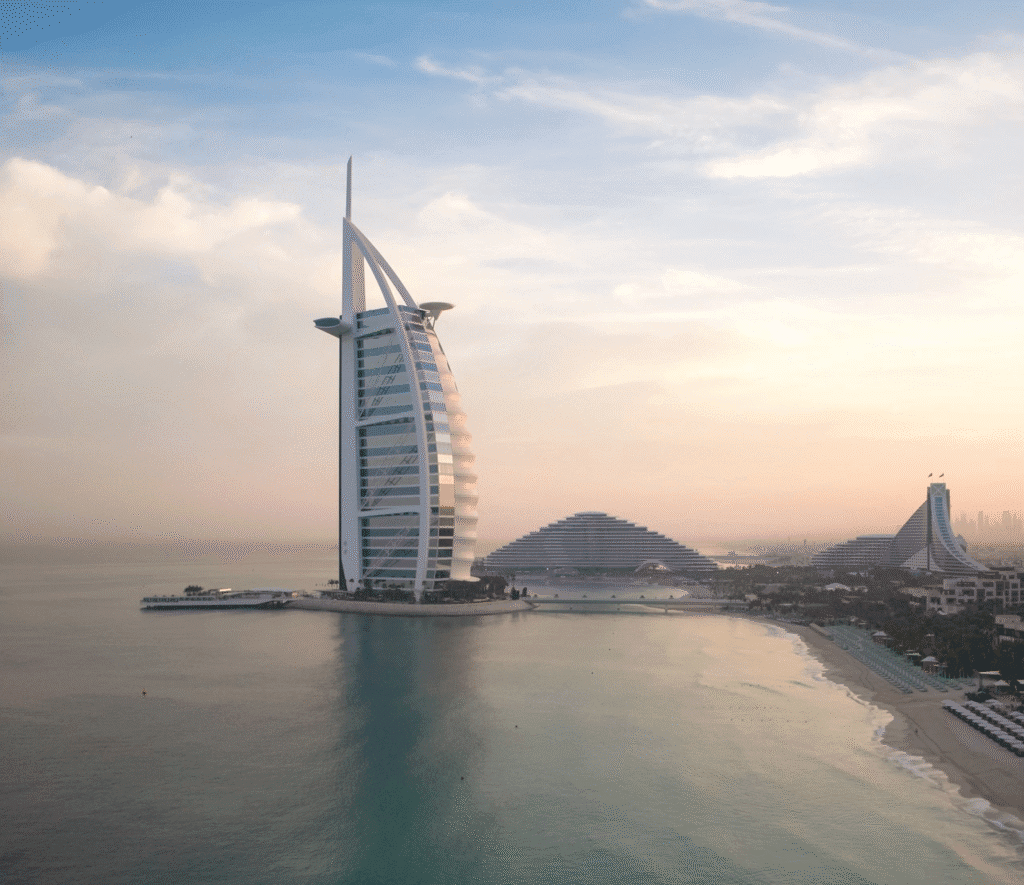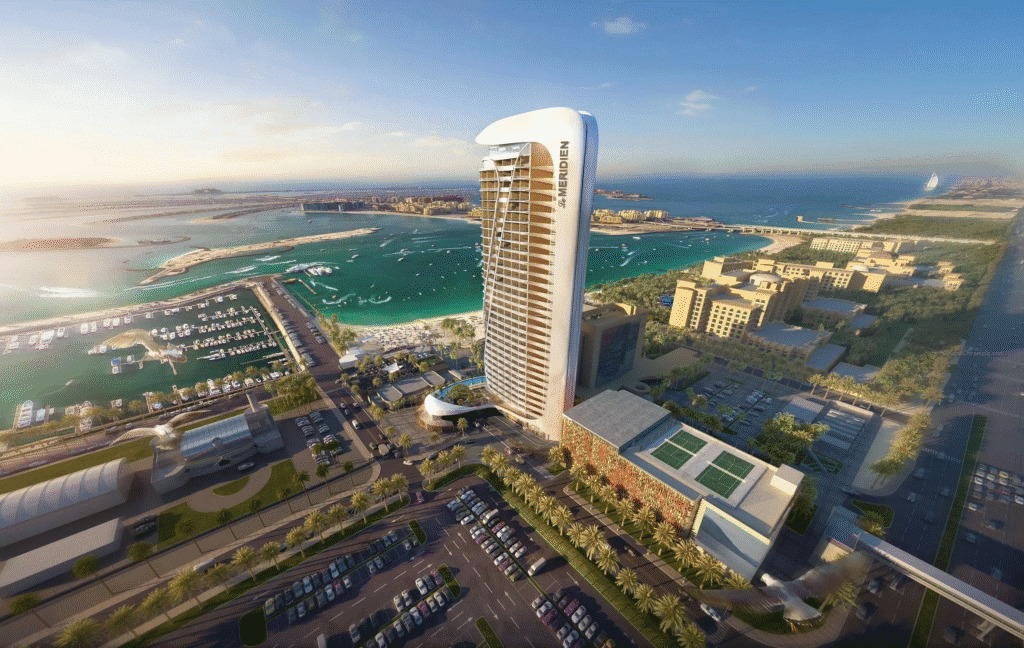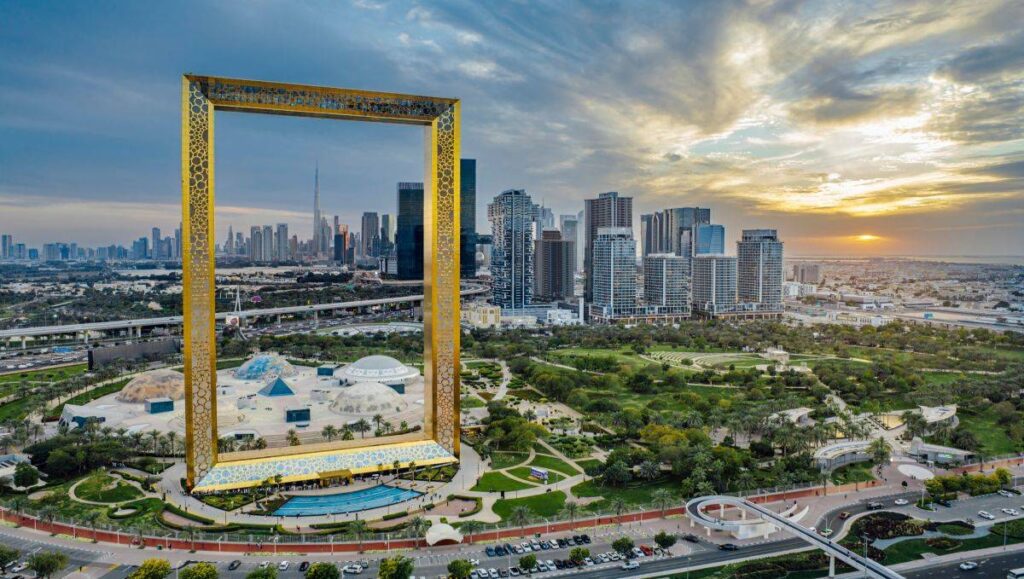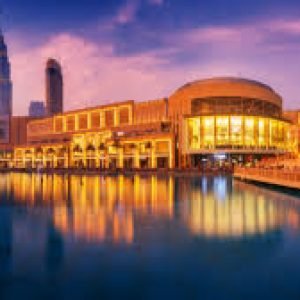Dubai hotel occupancy 2025 has reached a new milestone, surpassing 81% in the first half of the year. The city has welcomed nearly 10 million international visitors, reflecting a strong recovery in tourism after global travel disruptions. This surge in tourism and the increase in hotel occupancy highlight Dubai’s growing reputation as a top global destination for leisure and business travelers alike.
Surge in International Visitors
In the first six months of 2025, Dubai welcomed nearly 10 million international visitors, marking a 6.1% increase compared to the same period last year. Western Europe continues to be the largest source market, accounting for over 21% of total arrivals, with notable increases from countries such as Germany, the UK, and France. The Middle East, South Asia, and the United States also contributed significantly to visitor numbers, reflecting Dubai’s diverse appeal.
The rise in international tourism has been supported by several factors, including improved flight connectivity, visa facilitation programs, and the promotion of Dubai as a safe and attractive travel destination. Tourism authorities have also focused on creating tailored experiences for families, luxury travelers, and business visitors.

Growth in Hotel Inventory
Dubai hotel occupancy 2025 has been boosted by the expansion of the city’s hotel inventory. From 2021 to 2025, the number of hotel establishments increased from 670 to 730, while hotel rooms rose from 137,600 to 152,000. This growth has helped meet rising demand and ensures that visitors have a wide range of accommodation options, from luxury resorts to budget-friendly hotels.

Additionally, Dubai plans to open 19 new hotels by the end of 2025, adding over 5,000 rooms to the market. With over 748 properties and more than 157,000 keys expected by year-end, the city is prepared to maintain high occupancy levels and cater to the growing number of international tourists.

Increase in Average Daily Rate (ADR)
Dubai hotel occupancy 2025 has not only increased in volume but also in revenue. The average daily rate (ADR) in the first half of 2025 reached AED 745, a 5.5% increase from 2024. This reflects strong demand for premium and mid-range accommodations as more high-spending travelers visit the city.
Hotels in prime locations such as Downtown Dubai, Palm Jumeirah, and Business Bay reported higher occupancy and ADR, highlighting that both leisure and business travelers are contributing to revenue growth. Hotel operators continue to focus on service quality, innovative offerings, and exclusive experiences to maintain competitiveness.
Government Initiatives Supporting Tourism
The growth in Dubai hotel occupancy 2025 is closely tied to government initiatives. Dubai’s Economic Agenda D33 aims to make the city one of the top three global tourism destinations by 2033. The city has invested in infrastructure improvements, new attractions, and world-class events.
Major international events, shopping festivals, sports tournaments, and cultural exhibitions have helped sustain Dubai’s appeal, attracting visitors throughout the year. Safety measures, digital solutions, and convenient travel regulations have further enhanced the visitor experience.
Outlook for the Future
Looking ahead, Dubai hotel occupancy 2025 is expected to remain strong, supported by continuous investment in the hospitality sector and new tourism initiatives. The addition of over 5,000 hotel rooms in 2025, with another 6,000 planned for 2026–2027, will help the city meet rising international demand.

Experts predict that Dubai will maintain its high occupancy levels, continue attracting diverse markets, and reinforce its position as a top destination for business, leisure, and luxury travel. The combination of strategic planning, growing global connectivity, and attractive experiences ensures that Dubai will remain a world-class tourism hub in the coming years.
Conclusion
Dubai hotel occupancy 2025 reflects the city’s resilience and strategic growth in tourism. With occupancy surpassing 81%, nearly 10 million international visitors, and rising ADRs, the hospitality sector is thriving. Government initiatives, expanding hotel inventory, and a diverse events calendar contribute to Dubai’s appeal. As the city continues to attract global travelers, the future of its hospitality sector looks bright, sustaining its reputation as one of the world’s most sought-after destinations.
Do follow UAE Stories on Instagram
Read Next – UAE Logistics Integration Council to Boost $54B Economy and Reduce Red Tape












